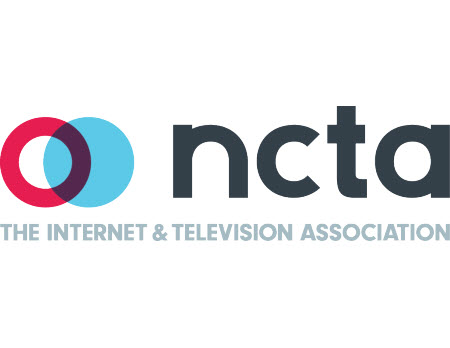NCTA: Mobile Access May Not Be Robust Enough for Remote Learning
Adds that observation to its agreement with FCC on excluding mobile phone subsidies

The smarter way to stay on top of the multichannel video marketplace. Sign up below.
You are now subscribed
Your newsletter sign-up was successful
NCTA-the Internet & Television Association has told the FCC that mobile broadband service may not be able to handle remote learning needs so perhaps should not be eligible for the COVID-19 aid subsidies for remote learning home internet connections and equipment the FCC is preparing to hand out ASAP.
Also Read: ISPs Prepare for Broadband Billions
"NCTA also supports the proposal not to include mobile phones as eligible equipment," NCTA told the FCC in comments on the Emergency Connectivity Fund (ECF) created by Congress in the American Rescue Plan of 2021, which passed Congress last month. The fund contains $7.6 billion. The Universal Service Administrative Company, which oversees the FCC's ongoing USF subsidy program, will administer the emergency fund, which will be kept separate from Universal Service Fund subsidies, including E-rate.
Congressional action was needed in part because the previous FCC interpreted statute to exclude subsidies for service or devices outside of schools or libraries from the FCC's E-rate (schools and libraries advanced telecommunications subsidy) fund, while the pandemic has turned most homes with school-aged children into remote classrooms.
NCTA said excluding phones from subsidies makes sense because, in addition to most people already having phones, "mobile access does not necessarily provide students with the type of robust broadband capability they need to fully participate in remote learning activities." Currently mobile is not eligible for E-rate funds.
Not surprisingly, CTIA, the wireless association, has told the FCC that smartphones with Wi-Fi hotspot capabilities are essential tools and should qualify as eligible equipment. As for wireless service not possibly making the grade, CTIA said mobile wireless has long been considered a key part of the solution to the homework gap.
Also Read: FCC Casts Wide Net for EBB Subsidy Players
The smarter way to stay on top of the multichannel video marketplace. Sign up below.
"As the Commission rightly observes, the ECF is intended to fund “equipment and services that are needed to provide the connectivity required to enable and support remote learning for students, school staff, and library patrons. There is no question that mobile wireless broadband solutions are among the most efficient and effective ways of doing so," CTIA told the FCC in its comments on the emergency fund.
“We’re surprised and disappointed NCTA would recommend policymakers deliberately overlook proven solutions to addressing the homework gap and limit the options to get and keep kids connected," said Nick Ludlum, SVP and chief communications officer, for CTIA. "If we have learned anything over the past year, it’s that’s we need to provide families with more options, not fewer. During the pandemic, the wireless industry connected more than 2.4 million kids who would otherwise have limited-to-no ability to continue their education. This is a time to focus on the best interests of America’s school children.”
Contributing editor John Eggerton has been an editor and/or writer on media regulation, legislation and policy for over four decades, including covering the FCC, FTC, Congress, the major media trade associations, and the federal courts. In addition to Multichannel News and Broadcasting + Cable, his work has appeared in Radio World, TV Technology, TV Fax, This Week in Consumer Electronics, Variety and the Encyclopedia Britannica.

